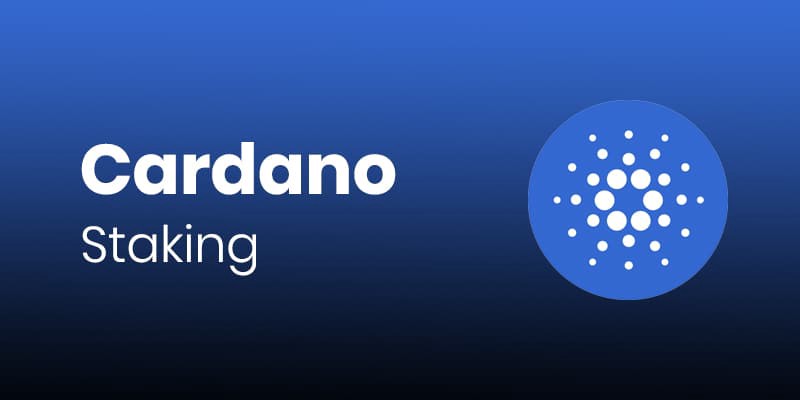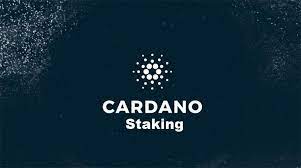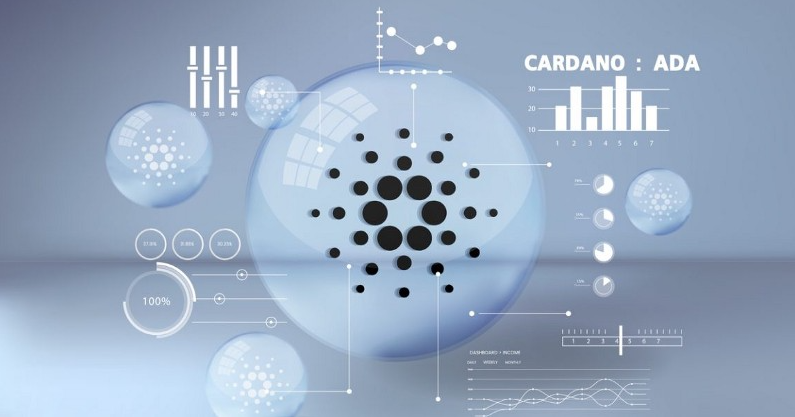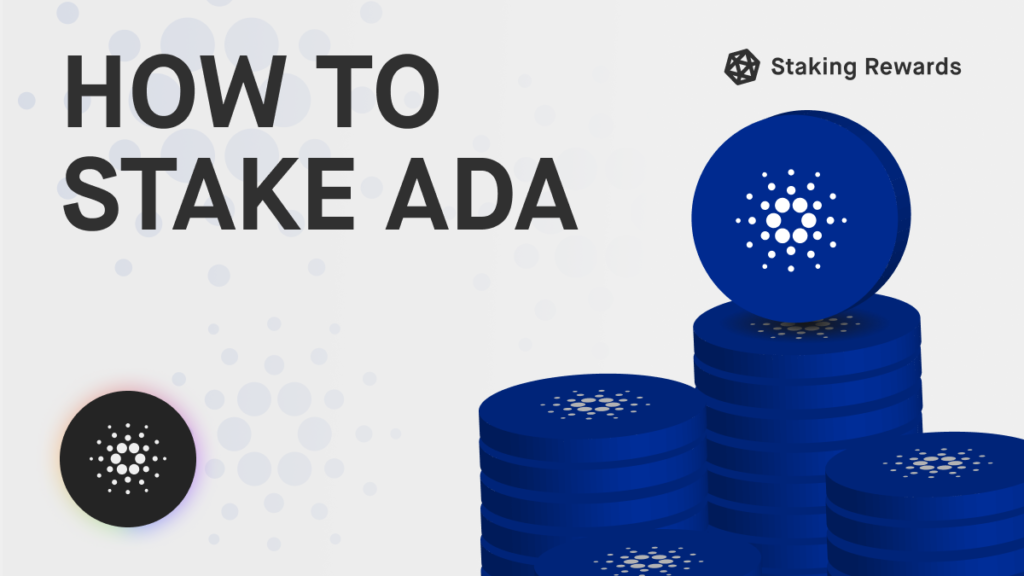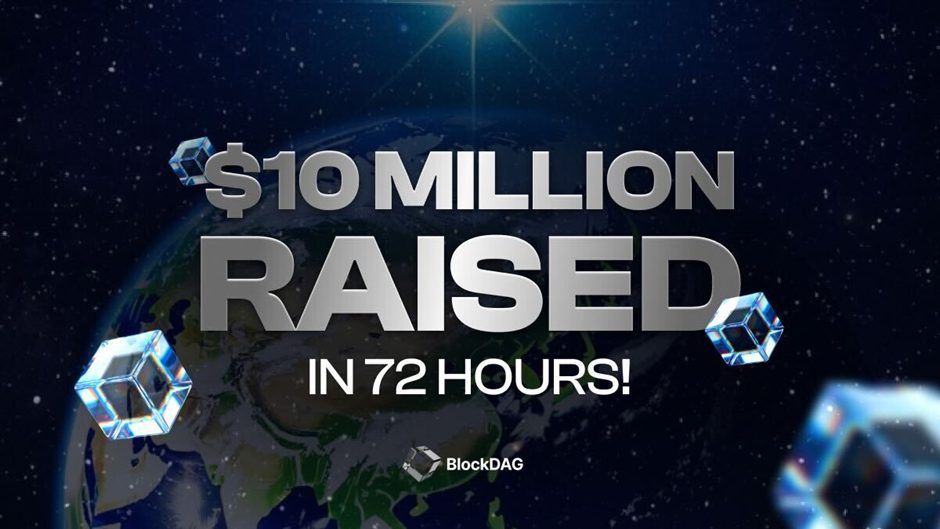What is Cardano Staking (ADA) and Earn Rewards? - CoinCu News
Cardano Staking – Cardano (ADA), a prominent cryptocurrency, has gained significant attention for its innovative blockchain technology and commitment to sustainability. One of the key features that sets...
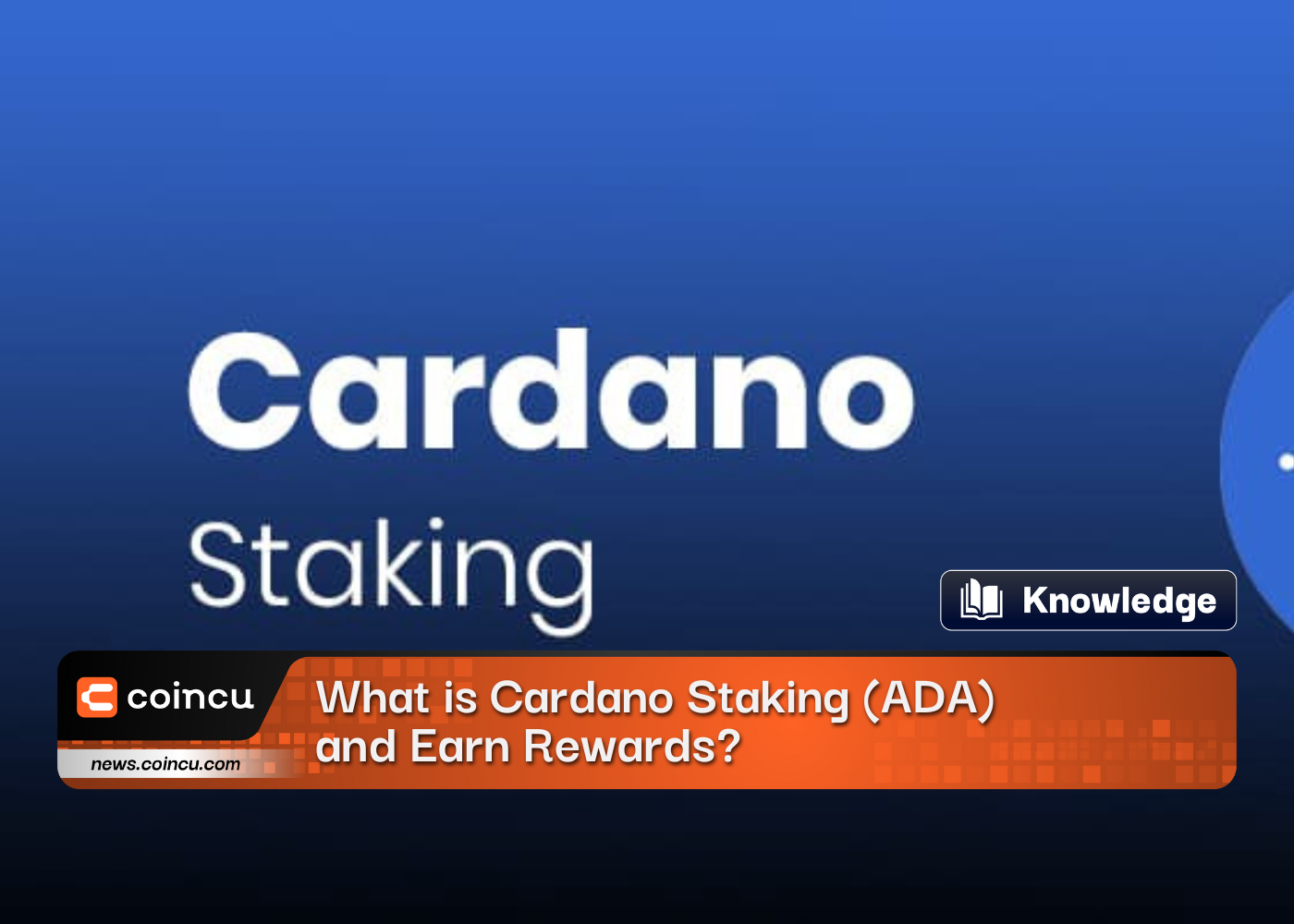
Cardano Staking – Cardano (ADA), a prominent cryptocurrency, has gained significant attention for its innovative blockchain technology and commitment to sustainability. One of the key features that sets Cardano apart is its staking mechanism, which allows ADA holders to participate in securing the network and earn rewards. In this comprehensive guide, we will explore the process of staking Cardano, including the benefits, requirements, and step-by-step instructions. Whether you are a Cardano enthusiast or a beginner looking to enter the world of cryptocurrency staking, understanding how to stake ADA can be a valuable opportunity to contribute to the network and potentially earn passive income.
Cardano staking refers to the process of holding and delegating ADA (the native cryptocurrency of the Cardano blockchain) to a stake pool in order to support the network’s operations and earn rewards. Cardano utilizes a proof-of-stake (PoS) consensus mechanism, which allows ADA holders to participate in the block validation process and secure the network.
When staking ADA, participants delegate their tokens to a stake pool, which consists of a group of nodes responsible for verifying transactions and adding blocks to the blockchain. By delegating their ADA, participants contribute to the overall security and decentralization of the Cardano network.
Staking ADA offers several benefits. Firstly, participants earn rewards in the form of additional ADA tokens for their contribution to the network. These rewards are distributed based on the stake pool’s performance and the amount of ADA delegated. Secondly, staking ADA helps secure the blockchain by ensuring a diverse and decentralized pool of stakeholders. Lastly, staking ADA allows participants to have a say in the governance of Cardano. ADA holders can vote on proposals and decisions that shape the future of the blockchain, including protocol upgrades and funding allocation.
To stake ADA, participants need to select a compatible wallet, transfer ADA tokens to that wallet, research and choose a reputable stake pool, delegate their ADA to the selected stake pool, and wait for the delegation to become active. Participants can then monitor their staked ADA, rewards earned, and make adjustments if needed.
Benefits of Cardano Staking
Staking ADA, the native cryptocurrency of the Cardano blockchain, offers several benefits to participants. Here are some key advantages of Cardano staking:
- Earning Rewards: One of the primary benefits of staking ADA is the opportunity to earn rewards. By staking ADA and delegating it to a stake pool, participants become eligible to receive additional ADA tokens as rewards. These rewards are distributed based on the stake pool’s performance and the amount of ADA delegated. Staking allows participants to passively earn income in the form of ADA tokens.
- Network Security: Staking ADA plays a crucial role in ensuring the security and stability of the Cardano network. By staking their ADA and delegating it to a stake pool, participants actively contribute to the decentralization of the network. A diverse and decentralized network is more secure against potential attacks or malicious activities. Staking helps maintain the integrity and reliability of the Cardano blockchain.
- Decentralization and Governance: Cardano aims to be a highly decentralized blockchain platform, and staking ADA is an essential part of achieving this goal. By participating in the staking process, ADA holders have the opportunity to actively contribute to the governance of the Cardano ecosystem. They can vote on proposals and decisions that shape the future direction of the blockchain. Staking ADA gives participants a voice and empowers them to be involved in the decision-making process.
- Passive Income: Staking ADA provides an avenue for participants to earn passive income. By staking their ADA tokens, participants can generate rewards over time without actively trading or engaging in other complex activities. The process of staking is relatively straightforward, and participants can earn rewards simply by holding and delegating their ADA. This passive income stream can be a valuable addition to an investment portfolio or a means of generating supplemental income.
- Long-term Investment: Staking ADA can be seen as a long-term investment strategy. By staking and participating in the growth of the Cardano network, participants align themselves with the success of the blockchain platform. As Cardano evolves and gains wider adoption, the value of ADA may appreciate. By staking and earning rewards, participants can potentially benefit from both the growth of ADA’s value and the rewards generated through staking.
- Environmental Sustainability: Cardano is known for its commitment to sustainability and energy efficiency. Unlike proof-of-work (PoW) blockchains that require substantial energy consumption, Cardano’s PoS consensus mechanism is more energy-efficient. By staking ADA and participating in the PoS consensus, participants contribute to a greener and more sustainable blockchain ecosystem.
Staking ADA offers participants the opportunity to earn rewards, support network security, participate in governance, generate passive income, make a long-term investment, and contribute to the sustainability of the Cardano blockchain. It is a compelling option for ADA holders who want to actively engage with the Cardano ecosystem and benefit from their ADA holdings.
Step-by-Step Guide to Staking Cardano
Staking Cardano (ADA) is a process that allows you to participate in the network’s consensus mechanism and earn rewards in the form of additional ADA tokens. Here is a step-by-step guide to staking Cardano:
- Understand Cardano’s Staking Mechanism:
- Cardano uses a Proof-of-Stake (PoS) consensus algorithm, where stakeholders hold ADA in a wallet and delegate their stake to a stake pool to participate in block creation and earn rewards.
- Set Up a Wallet:
- Choose a Cardano wallet that supports staking. Daedalus and Yoroi are popular options. Download and install the wallet on your computer or mobile device.
- Create a Wallet:
- Launch the wallet application and follow the instructions to create a new wallet. Make sure to securely back up your wallet recovery phrase or seed words. This will be crucial for wallet restoration or recovery in case of any issues.
- Fund Your Wallet:
- Obtain ADA tokens from a reputable cryptocurrency exchange by purchasing them or transferring them from another wallet. Send the ADA tokens to the address associated with your newly created Cardano wallet.
- Delegate to a Stake Pool:
- In the wallet application, navigate to the staking section or delegation center.
- Choose a stake pool from the available options. Consider factors such as pool performance, reliability, fees, and community reputation.
- Once you’ve selected a pool, click on the delegate or stake button and enter the pool’s ticker or pool ID.
- Confirm the delegation transaction and enter your wallet password, if prompted.
- Wait for Confirmation:
- After delegating to a stake pool, it takes some time for the delegation to be processed and confirmed on the Cardano blockchain. This process usually takes a few epochs (5-7 days) due to the network’s protocol.
- Monitor and Earn Rewards:
- Once your delegation is confirmed, you can monitor the performance of the stake pool and track your rewards within the wallet application.
- Rewards are distributed based on the stake pool’s performance and the amount of ADA you have delegated. Typically, you will receive rewards every epoch (5 days).
- Re-delegate or Un-delegate:
- If you decide to change your stake pool, you can re-delegate your ADA to another pool at any time. Simply access the staking section of your wallet, choose a new pool, and follow the delegation process again.
- If you want to un-delegate and stop staking altogether, you can also do so from the staking section of your wallet. This process usually takes one full epoch to take effect.
Risks and Considerations
Staking Cardano involves certain risks and considerations that you should be aware of. Here are some important points to keep in mind:
- Network Risks: Cardano is a relatively new blockchain network, and as with any emerging technology, there are inherent risks associated with its development and adoption. These risks include potential bugs, vulnerabilities, or other technical issues that could impact the stability or security of the network.
- Delegation Risks: When staking Cardano, you delegate your ADA to a stake pool. It’s crucial to carefully select a reliable and reputable stake pool to mitigate the risk of choosing a poorly performing or malicious pool. Consider factors such as the pool’s performance history, fees, security measures, and community reputation.
- Market Volatility: Cryptocurrencies, including ADA, are known for their price volatility. The value of ADA can fluctuate significantly, which means that the rewards you earn from staking may also vary in value. Be prepared for potential price volatility and ensure that you are comfortable with the associated risks.
- Regulatory Risks: The cryptocurrency industry is subject to evolving regulations in different jurisdictions. Changes in regulations or legal uncertainties could impact the staking process, taxation, or the overall acceptance and usability of ADA. Stay informed about the regulatory environment in your jurisdiction to ensure compliance and to understand any potential risks.
- Technical Risks: Staking Cardano requires interacting with wallets and other software applications. There is a risk of human error, such as entering incorrect addresses, passwords, or losing access to your wallet or recovery phrase. Safeguard your wallet and recovery phrase in a secure manner, and be cautious of phishing attempts or malicious software.
- Opportunity Cost: When staking ADA, your tokens are locked for a certain period. During this time, you may not be able to use or sell the staked tokens. Consider the opportunity cost of having your ADA locked and evaluate whether the potential rewards outweigh the benefits of holding or using the tokens in other ways.
- Centralization Risks: Cardano aims to be a decentralized blockchain network. However, there is a risk of stake centralization if a few large stakeholders or stake pools control a significant portion of the network’s total stake. This could potentially undermine the network’s security and decentralization goals.
Conclusion
Staking Cardano (ADA) provides an opportunity to actively participate in the Cardano network while earning rewards for securing the blockchain. By following this comprehensive guide, you can confidently navigate the process of staking ADA, starting from setting up a wallet to delegating your tokens to a stake pool. Remember to conduct thorough research, stay informed about the latest developments, and regularly monitor your staking rewards. As Cardano continues to evolve, staking ADA remains an attractive option for cryptocurrency enthusiasts seeking to contribute to the network’s growth and potentially earn passive income through their ADA holdings.
DISCLAIMER: The Information on this website is provided as general market commentary and does not constitute investment advice. We encourage you to do your own research before investing.
Join us to keep track of news: https://linktr.ee/coincu
Annie
Coincu News
Delegate Your Voting Power to FEED DRep in Cardano Governance.
DRep ID: drep12ukt4ctzmtf6l5rj76cddgf3dvuy0lfz7uky08jfvgr9ugaapz4 | We are driven to register as a DRep by our deep dedication to the Cardano ecosystem and our aspiration to take an active role in its development, ensuring that its progress stays true to the principles of decentralization, security, and community empowerment.DELEGATE VOTING POWER!

